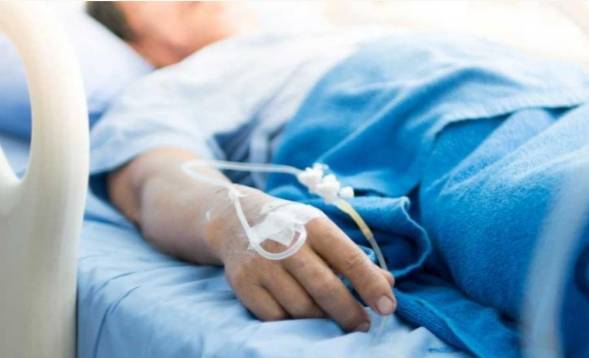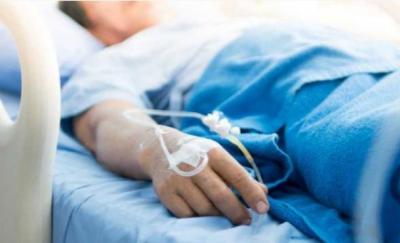Starting today, patients in hospitals will not have an easy choice: either pay for the medications required for their treatment, or forgo treatment entirely. The matter is settled with the announcement from the Syndicate of Private Hospitals in Lebanon that it will start implementing the warning issued early last week, which requires patients to pay in cash for their medications. Hospital Syndicate President Sleiman Haroun confirmed to "Al-Akhbar" that the decision is "inevitable," due to hospitals' failure to reach a solution with importers who demand payment for medications and medical supplies in cash, rather than by bank checks as was previously customary.
Haroun finds himself cornered, as hospitals' funds are locked in banks, "and cannot be accessed except via bank checks, which is the only available option, under the pretext that the Central Bank of Lebanon is not providing them with the required liquidity." Nonetheless, hospitals managed to operate with checks where possible with many importers, until these began withdrawing from the checks game, demanding to collect their money "fresh."
In the latest open meetings between the Syndicate of Hospitals and importers (medications and supplies), it was clear that they had reached a dead end with a catastrophic outcome: patients must pay for medications directly. For Haroun, there are no proposals left for solutions "except for one solution that comes from one place, which is the Central Bank of Lebanon." However, as of now, there are no responses from the Bank to clarify how the crisis will unfold, and Haroun confirmed that the billing with patients will be different next week.
In this context, the way the Central Bank interacts with complainants, including the Hospitals' Syndicate, does not suggest a satisfactory solution, as it refrains from responding to inquiries, turning its back on everyone, even though citizens will bear the consequences.
**Unfair Offer**
The only time the Bank responded to the Syndicate, it offered to provide 90 billion L.L. monthly, "which does not meet our demand for 200 billion L.L., although even this amount is insufficient to cover 20% of our needs, as we now pay cash for everything from diesel to salaries to food and now medicine." Haroun adds that "salaries alone cost hospitals 300 billion L.L. monthly, and what we used to receive from banks was not enough to cover 15 to 20% of the expenses." Additionally, paying by bank checks has recently become costly, with importers requesting a 20% increase on them, noting that "hospitals can no longer bear these increases on every invoice."
**The Solution Lies with the Central Bank**
There is no solution or connection except with the Central Bank, which today governs all. Everyone acknowledges this, from the Hospitals' Syndicate that has exhausted all options with it, to the Syndicate of Medical Supplies and Drugs Importers to the Ministry of Health.
In this context, Salma Aasi, President of the Medical Supplies Importers Syndicate, confirms this, noting that "dealing by bank checks no longer works, as distributors no longer provide cash advances, and we cannot take a bank loan, so I can no longer open a credit account for hospitals." Aasi pointed out, "We will meet with the Hospitals' Syndicate next Monday," yet both parties doubt they will reach solutions, particularly considering that the actual "cash" crisis began about seven months ago, during which the Hospitals' Syndicate, according to Haroun, sought fair solutions in cooperation with drug and medical supply importers to avoid reaching the statement announced by the Syndicate early last week. However, the meetings, according to Haroun, yielded no significant results other than delaying the problem, as the "first and main and final" solution lies with the Central Bank.
For its part, the Ministry of Public Health cannot provide any assistance, as "the solution is financial and resides with the Central Bank and the Ministry of Finance," says Minister of Public Health Firas Abiad, pointing out that apart from that, it's all about making statements. On another note, Abiad announced the end of the contracts with hospitals for the year 2023, after the contracts from last year had expired, stating that the ministry "is now working on reassigning credits. Once that is complete, we will begin paying hospitals, with payments for 2023 to follow as soon as hospitals submit their invoices and we work to audit them."




